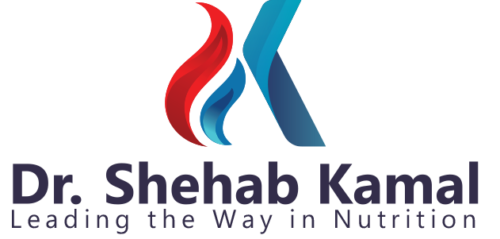Managing Obesity and Thinness: Effective Strategies for Healthy Weight Management، Managing body weight, whether dealing with obesity or thinness, is crucial for maintaining overall health and well-being. Both conditions require careful attention to diet, exercise, and lifestyle habits to achieve and maintain a healthy weight.
Understanding Obesity and Thinness
Obesity and thinness represent two ends of the weight spectrum, each with its own set of health challenges and management strategies. Understanding the causes, health implications, and effective management of both conditions is crucial for achieving and maintaining a healthy weight.
Obesity: Causes and Health Risks
Obesity is defined by an excessive accumulation of body fat, typically measured by a Body Mass Index (BMI) of 30 or higher. Several factors contribute to obesity, including genetics, diet, physical inactivity, and metabolic issues.
- Health Risks of Obesity: Obesity is associated with a range of serious health conditions, including heart disease, diabetes, hypertension, and certain cancers. It can also lead to joint problems, sleep apnea, and decreased mobility, impacting quality of life.
- Managing Obesity: Effective weight management strategies for obesity include a combination of dietary changes, increased physical activity, behavioral therapy, and, in some cases, medical or surgical interventions. A focus on creating a sustainable, balanced diet and regular exercise routine is essential for long-term success.
Thinness: Causes and Health Risks
Thinness, often defined as a BMI below 18.5, can also pose health risks, particularly when it results from inadequate nutrition or an underlying health condition. Factors contributing to thinness can include genetics, high metabolism, chronic illnesses, or eating disorders.
- Health Risks of Thinness: Being underweight can lead to weakened immune function, increased risk of infections, osteoporosis, and fertility issues. It can also result in fatigue and poor physical performance.
- Managing Thinness: To address thinness, it’s important to focus on increasing calorie intake through nutrient-dense foods, balancing macronutrients, and possibly incorporating strength training to build muscle mass. A gradual approach to weight gain is often recommended to ensure it is achieved in a healthy and sustainable manner.
Understanding the complexities of obesity and thinness allows for better management and prevention strategies, promoting overall health and well-being. Whether the goal is weight loss, weight gain, or maintaining a healthy weight, a personalized approach that considers individual needs and circumstances is key.

Nutrient-Dense Foods
Nutrient-dense foods are essential components of a healthy diet, particularly when managing obesity. These foods are rich in essential nutrients but low in calories, making them ideal for supporting weight loss and overall health. Below are key categories of nutrient-dense foods:
1. Fruits and Vegetables
- Variety of Colors: Consuming a variety of fruits and vegetables ensures a broad range of vitamins, minerals, and antioxidants. Dark leafy greens like spinach and kale, vibrant berries, and brightly colored peppers are particularly nutrient-dense.
- Low in Calories: Most fruits and vegetables are low in calories but high in fiber, which helps to promote satiety and reduce overall calorie intake.
2. Whole Grains
- High in Fiber: Whole grains like oats, brown rice, quinoa, and whole wheat are rich in dietary fiber, which aids digestion, helps regulate blood sugar levels, and promotes a feeling of fullness.
- Nutrient-Rich: These grains also provide essential nutrients such as B vitamins, iron, and magnesium, supporting energy metabolism and overall health.
3. Lean Proteins
- Protein-Rich Foods: Lean protein sources, such as chicken breast, turkey, fish, tofu, and legumes, provide essential amino acids needed for muscle repair and growth, especially important during weight loss.
- Low in Unhealthy Fats: Choosing lean proteins over fatty cuts of meat helps reduce saturated fat intake, supporting heart health and weight management.
4. Healthy Fats
- Unsaturated Fats: Healthy fats found in foods like avocados, nuts, seeds, and olive oil are crucial for overall health. These fats support brain function, heart health, and help with the absorption of fat-soluble vitamins (A, D, E, and K).
- Satiety: Including healthy fats in meals can help increase satiety, making it easier to stick to a calorie-controlled diet.
5. Dairy and Dairy Alternatives
- Low-Fat or Non-Fat Options: Low-fat or non-fat dairy products like yogurt, milk, and cheese provide essential nutrients like calcium, vitamin D, and protein without excessive calories or saturated fat.
- Fortified Alternatives: For those who are lactose intolerant or prefer plant-based options, fortified almond, soy, or oat milk can provide similar nutrients.
6. Legumes and Beans
- High in Protein and Fiber: Legumes, such as lentils, chickpeas, and black beans, are excellent sources of plant-based protein and fiber. They help with satiety and are beneficial for heart health.
- Low in Fat: These foods are typically low in fat, making them a great addition to a weight-loss diet while still providing essential nutrients.
7. Nuts and Seeds
- Nutrient Powerhouses: Nuts and seeds, such as almonds, walnuts, chia seeds, and flaxseeds, are nutrient-dense and provide healthy fats, protein, and fiber. They are also rich in antioxidants and omega-3 fatty acids.
- Portion Control: While nutrient-dense, nuts and seeds are also high in calories, so it’s important to consume them in moderation.
8. Fish and Seafood
- Omega-3 Rich: Fatty fish like salmon, mackerel, and sardines are excellent sources of omega-3 fatty acids, which are important for heart health and reducing inflammation.
- High-Quality Protein: Fish provides high-quality protein with fewer calories than red meat, making it a great option for a nutrient-dense diet.
Incorporating nutrient-dense foods into your diet helps ensure that your body receives the essential vitamins, minerals, and other nutrients it needs while managing calorie intake. This approach supports overall health and is particularly beneficial for those looking to manage their weight effectively.


